X
Site
Searches content on sportslib.net based on your keyword.
Video
Searches for video content based on your keywords.
Board
Searches the Football Message Board for content matching your keywords.

 Chapter 1. FIFA > The Best FIFA Football Awards
Chapter 1. FIFA > The Best FIFA Football Awards♣ FIFA Football Awards
The Best FIFA Football Awards is a football award presented annually by the sport's governing body, FIFA. The first awarding ceremony was held on 9 January 2017 in Zürich, Switzerland. The award is aimed at reviving the FIFA World Player Gala. This award being given to the players with best performance in the calendar year.
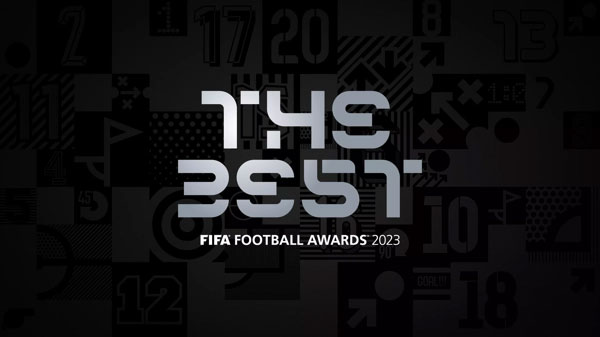
 The Best FIFA Men's Player
The Best FIFA Men's Player
The Best FIFA Men's Player is an association football award presented annually by the sport's governing body, FIFA, since 2016, to honour the player deemed to have performed the best over the previous calendar year. The award was formerly known as the FIFA World Player of the Year, which was merged with France Football's Ballon d'Or in 2010 to become the FIFA Ballon d'Or in a six-year partnership.
History
In 2010, the FIFA World Player of the Year award combined with the Ballon d'Or to create the FIFA Ballon d'Or in a six-year partnership. FIFA presided over the FIFA Ballon d'Or after agreeing to pay £13million for the merge of the two major player awards with France Football. The six editions of the FIFA Ballon d'Or were dominated by Lionel Messi and Cristiano Ronaldo, as part of their ongoing rivalry. In 2016, the Ballon d’Or again lost its "FIFA" tag and would be voted for exclusively by journalists, while the FIFA World Player of the Year award – which ran from 1991 to 2009 – was resurrected, this time as The Best FIFA Men's Player.
According to reports, FIFA's decision not to renew the deal was made in order to improve the organization's strained relationship with England's FA. This was based on the fact the annual ceremony was held in Zürich – and new FIFA president Gianni Infantino wanted to move the next one to London.
The trophy was designed by Croatian artist Ana Barbić Katičić.
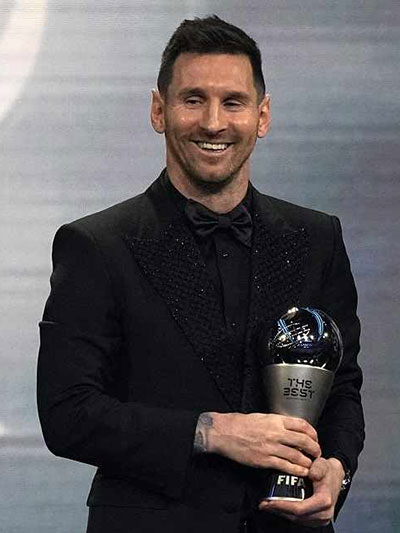
 The Best FIFA Women's Player
The Best FIFA Women's Player
The Best FIFA Women's Player is a football award presented annually by the sport's governing body, FIFA, since 2016, to honour the player deemed to have performed the best over the previous calendar year. From 2001 to 2015, the award was known as the FIFA Women's World Player of the Year.
History
The selection criteria for the players of the year are: sporting performance, as well as general conduct on and off the pitch.
The votes are decided by media representatives, national team coaches, and national team captains. In October 2016, it was announced that the general public would also be allowed to vote. Each group has 25% of the overall vote.
At the 2017 awards, 2016 FIFA U-17 Women's World Cup Bronze Ball and Bronze Shoe winner and amateur club player Deyna Castellanos was nominated. Professional players Megan Rapinoe and Sam Kerr criticized the nomination.
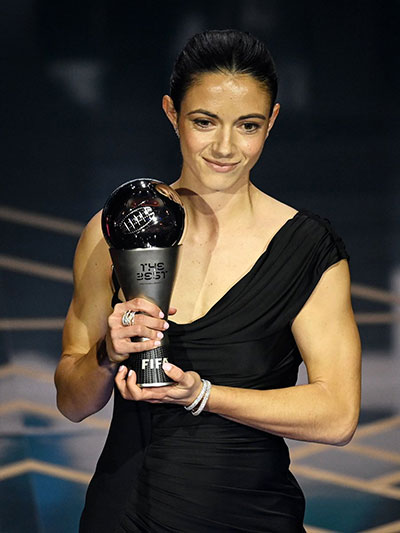
 The Best FIFA Football Coach
The Best FIFA Football Coach
The Best FIFA Football Coach is an association football award given annually to the men's and women's football coaches who are considered to have performed the best in the previous 12 months.
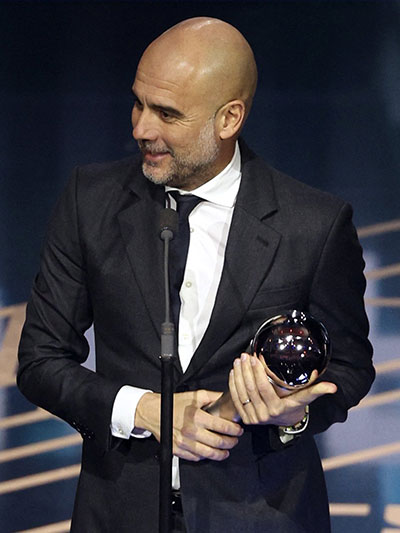
History
The selection criteria for the coaches of the year is: performance and general behaviour of their teams on and off the pitch.
The votes are decided by media representatives, national team coaches, and national team captains. In October 2016, it was announced that the general public would also be allowed to vote. Each group gets 25% of the overall vote.
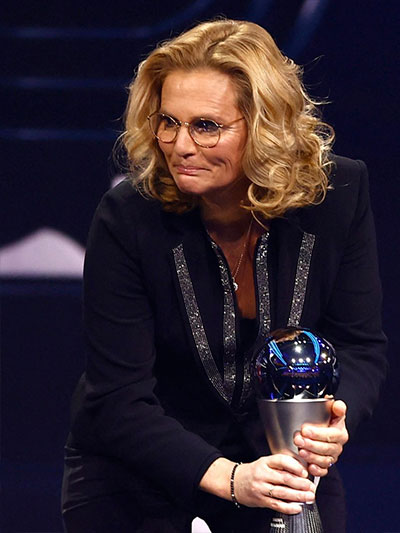
 The Best FIFA Goalkeeper
The Best FIFA Goalkeeper
The Best FIFA Goalkeeper is an association football award presented annually by the sport's governing body, FIFA, to the world's best men's and women's goalkeeper.

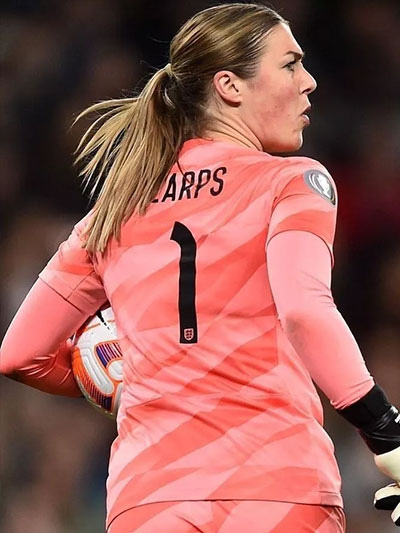
♣ FIFPRO
The Fédération Internationale des Associations de Footballeurs Professionnels (English: International Federation of Professional Footballers), generally referred to as FIFPRO, is the worldwide representative organisation for 65,000 professional footballers. FIFPRO, with its global headquarters in Hoofddorp, Netherlands, is made up of 66 national players' associations. In addition, there are four candidate members. Lionel Messi has the most ever appearances in the FIFPRO World 11 with 17 overall, followed by Cristiano Ronaldo with 15.
History
On 15 December 1965, representatives of the French, Scottish, English, Italian and Dutch players' associations met in Paris, with the objective of setting up an international federation for footballers. In the second half of June 1966, the first FIFPRO congress took place in London, just before the start of the 1966 FIFA World Cup. The articles of association of FIFPRO were thereby adopted and the objectives accurately laid down. FIFPRO was responsible for increasing the solidarity between professional footballers and players' associations.
It was originally laid down that a congress would be held once every four years at a minimum. The latest congress was in Uruguay in October 2022.
FIFPRO has grown from a European organisation into a global network and has done much to support countries on other continents – Asia/Oceania, Africa, and North, Central and South America – in their efforts to set up players' associations.
FIFPRO tried to offer the players' associations or other interest associations the means for mutual consultation and co-operation to achieve their objectives. In addition, it wished to co-ordinate the activities of the different affiliated groups in order to promote the interests of all professional footballers. Indeed, FIFPRO likewise had in mind propagating and defending the rights of professional footballers. The emphasis was thereby laid on the freedom of the football player to be able to choose the club of his choice at the end of his contract. FIFPRO supported Belgian footballer Jean-Marc Bosman in his judicial challenge of the football transfer rules which led to the Bosman ruling in 1995.
In 2013, FIFPRO launched a legal challenge against the transfer system. Phillipe Piat, the FIFPRO president at the time, said "the transfer system fails 99% of players around the world, it fails football as an industry and it fails the world's most beloved game". According to the President of FIFPRO Division Europe Bobby Barnes, 28% of the money from a transfer fee is paid to agents, and many players are not paid on time or at all. He claims this leads to these players being "vulnerable targets of crime syndicates, who instigate match-fixing and threaten the very existence of credible football competitions". Writing for the BBC, Matt Slater said "professional footballers do not enjoy the same freedoms that almost every other EU worker does", and that "players look at US sport, and wonder why their career prospects are still constrained by transfer fees and compensation costs".
In recent years, FIFPRO has established itself as a leading reference in the football industry through player surveys and research into concussion, mental health, social media abuse, player workload monitoring, and more.
FIFPRO looks into securing a safe workspace for players, promoting their rights as ordinary workers. FIFPRO introduced new regulations to protect the rights of current and prospective mothers. These minimum conditions, agreed upon by FIFA and other governing bodies, offer women more job security and came into effect on 1 January 2021.
In the last five years, FIFPRO has repeatedly intervened to protect and enforce the rights of players to participate in an environment free from sexual misconduct, harassment, and abuse. FIFPRO is a firm advocate of ensuring that all people, including players, should be guaranteed and protected by human rights. In 2021, FIFPRO played an active role in the group evacuation of women's footballers and athletes from Afghanistan.
Current board
The FIFPRO Executive Board consists of 18 members, including president David Aganzo, for the term 2021–2025. He has been president since the FIFPRO Congress in Paris in November 2021. Following the statutory reforms established in February 2021, the board increased in size as well as in diversity, making space for new voices and instituting a mandatory minimum threshold of 33 percent for the least-represented gender:
Members
Founded on 15 December 1965, FIFPRO has 66 full members and 4 candidate members. Upon graduation to the next level, new members sign an affiliation agreement that promotes loyalty, integrity and fairness as well as principles of good governance, including open and transparent communications, democratic processes, checks and balances, solidarity and corporate social responsibility. Notably, two of the most preeminent nations in world football, Brazil and Germany, are not members of the FIFPRO.
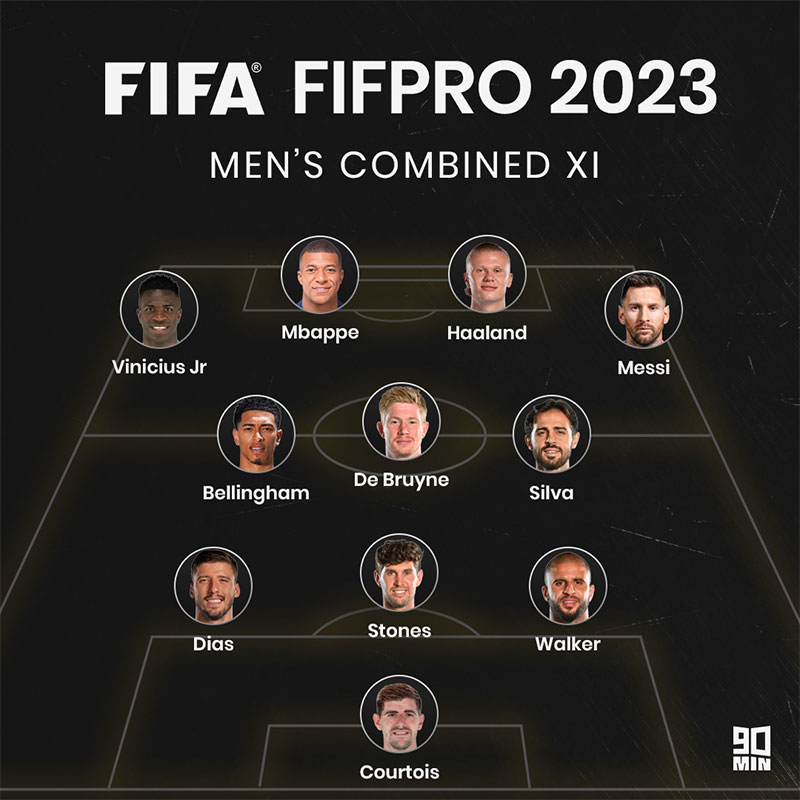
 FIFA FIFPRO World 11
FIFA FIFPRO World 11
FIFPRO invites all professional men's and women's footballers to compose the best men's and women's teams of the year, named the FIFPRO World 11 (also known as the FIFPRO World XI). In 2009, the world players' union joined hands with FIFA. While the format remained the same, the award name changed to the FIFA FIFPRO World 11.
Every year, FIFPRO and approximately 70 affiliated players unions distribute unique links that give players from all professional football clubs on the planet access to the digital voting platform. An initial 23-person squad then reveals the nominees. The goalkeeper, as well as the three defenders, three midfielders and three forwards who receive the most votes are then selected for the World 11. The remaining spot is assigned to the outfield player with the next highest number of votes who is not selected already. The 11-person FIFA FIFPRO World 11 is revealed at The Best FIFA Football Awards (formerly the FIFA Ballon d'Or).
From 2005 until 2008, FIFPRO also asked footballers to choose the FIFPRO World Player of the Year. From 2009 on, the election for FIFPRO Player of the Year merged with the FIFA World Player of the Year, and in 2010 combined with France Football's Ballon d'Or into one award, the FIFA Ballon d'Or.
In 2014, FIFPRO launched a women's football committee. In February 2016, the FIFPRO Women's World 11 was launched. Players of 33 different nationalities in over 20 countries participated in voting for one goalkeeper, four defenders, three midfielders and three forwards. As of 2019, the FIFPRO Women's World 11 is also revealed on stage during The Best FIFA Football Awards.
 FIFA Puskás Award
FIFA Puskás Award
The FIFA Puskás Award [ˈpuʃkaːʃ] is an award established on 20 October 2009 by the Fédération Internationale de Football Association (FIFA), at the behestt of then-president Sepp Blatter, to be awarded to the male or female judged to have scored the most aesthetically significant, or "most beautiful", goal of the calendar year. The Puskás award is announced yearly and is considered by voting.
The award is in honour of Ferenc Puskás, the striker of Real Madrid during the late 1950s to the late 1960s, and central member of the highly successful Hungarian side of the same era. Puskás is widely considered by many to be the most powerful and prolific forward Europe produced in first-division football, and was honoured by IFFHS in 1997 as the best top-tier goalscorer of the 20th century. Puskás scored 806 goals in 793 games and his 86 national team goals in 90 outings was a world record at the time.
"It is important to preserve the memory of those footballing greats who have left their mark on our history. Ferenc Puskás was not only a player with immense talent who won many honours, but also a remarkable man. FIFA is therefore delighted to pay tribute to him by dedicating this award to his memory," said Blatter at the inauguration of the award in Budapest.
Until 2018, the winner was decided completely based on voting by fans on FIFA's official website. However, after a controversy in the 2018 award, FIFA changed the procedure. Now, the award is decided by pundits selected by FIFA, who will choose the winner based on the top three goals voted for by the public.
The time-frame for the first award was July 2008 to July 2009. The annual award was presented for the first time during the 2009 FIFA World Player of the Year Gala on 21 December in Switzerland, with Portuguese player Cristiano Ronaldo being the first prize winner.
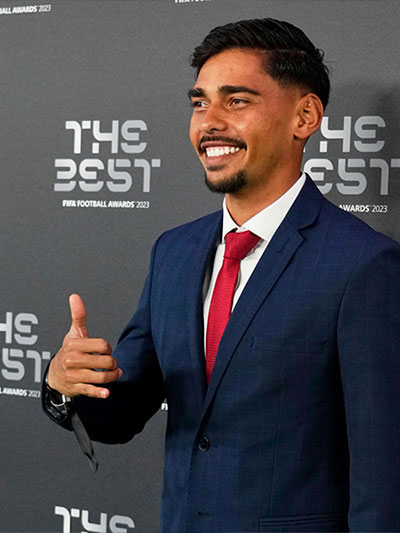
▶ FIFA Annual Awards Go page
Award criteria
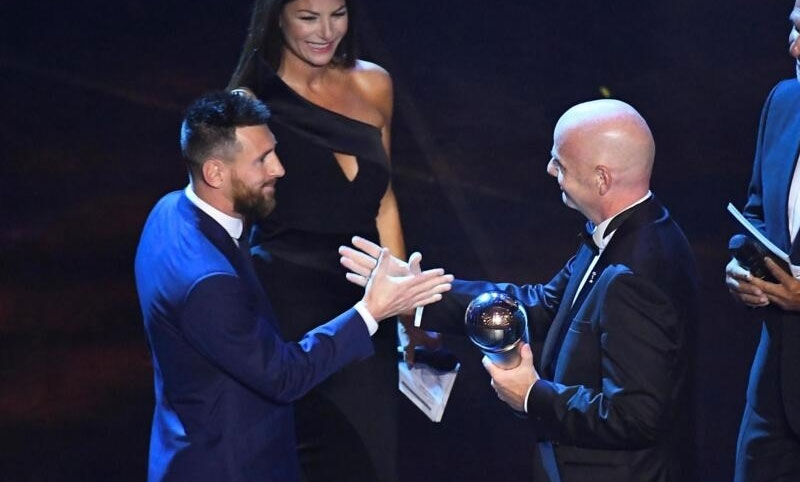
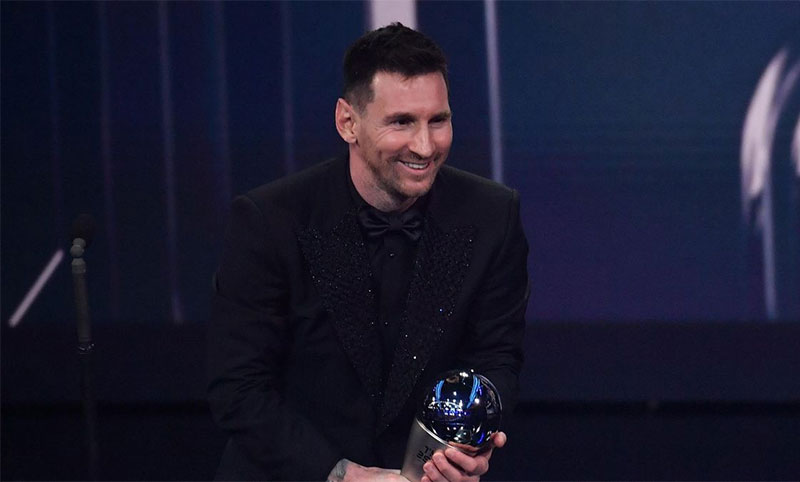
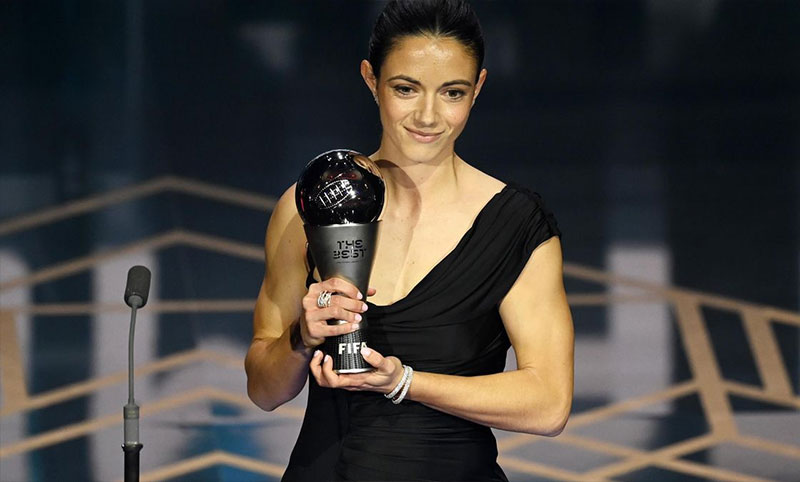
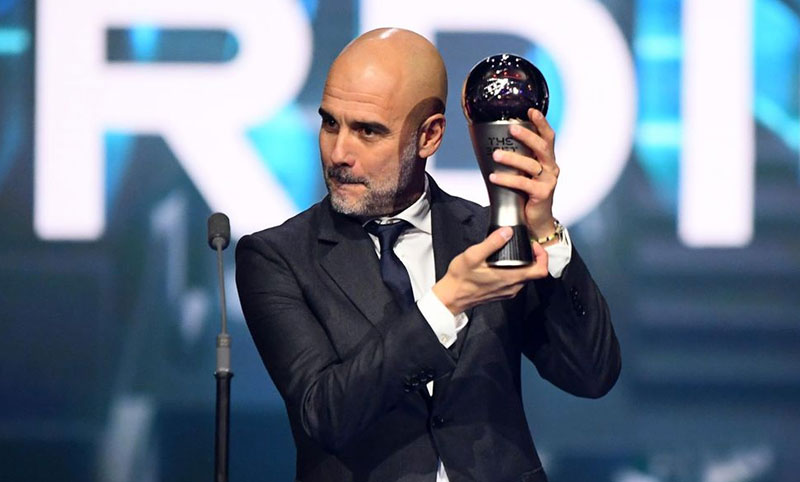
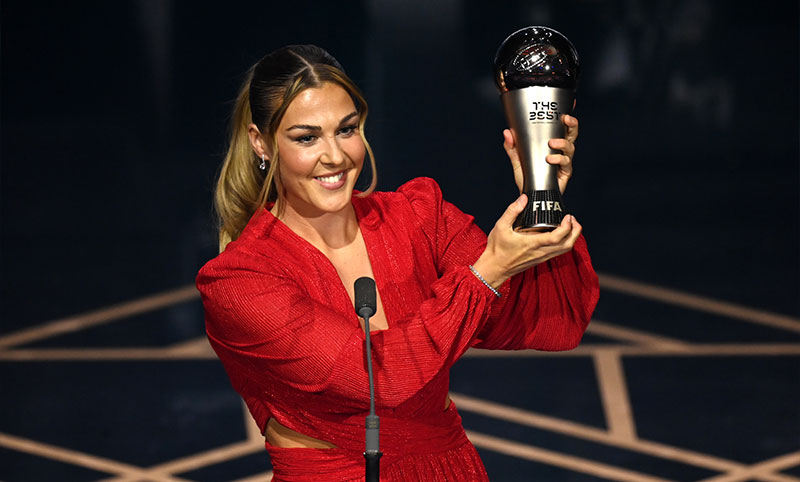
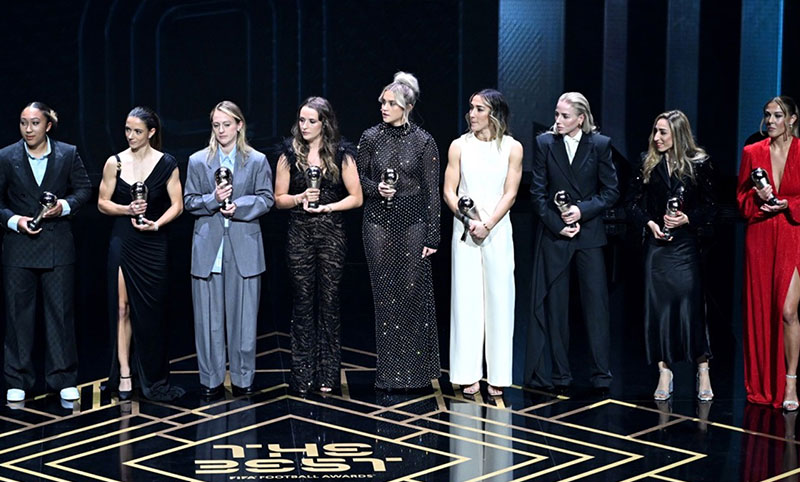
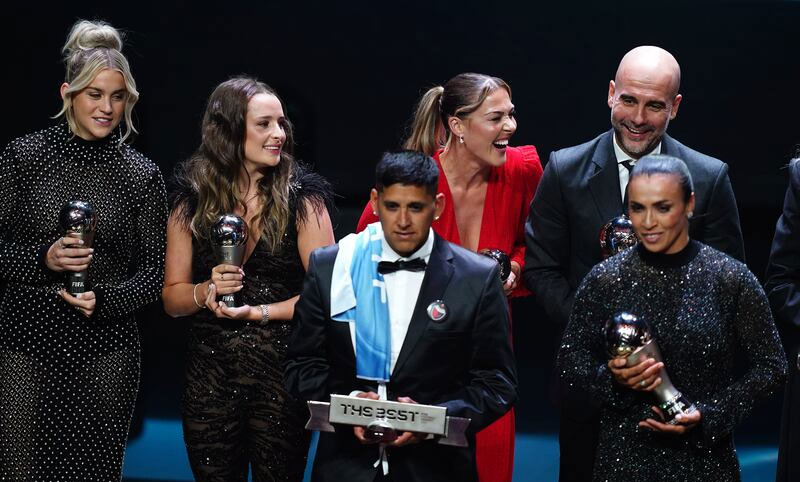
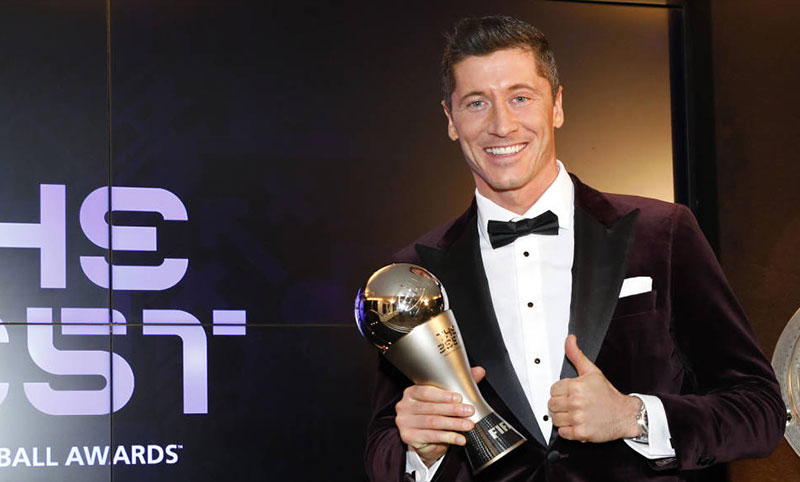
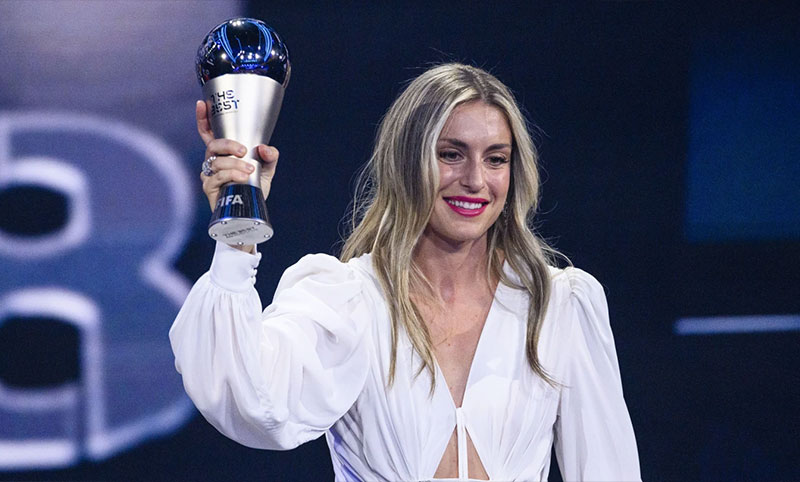
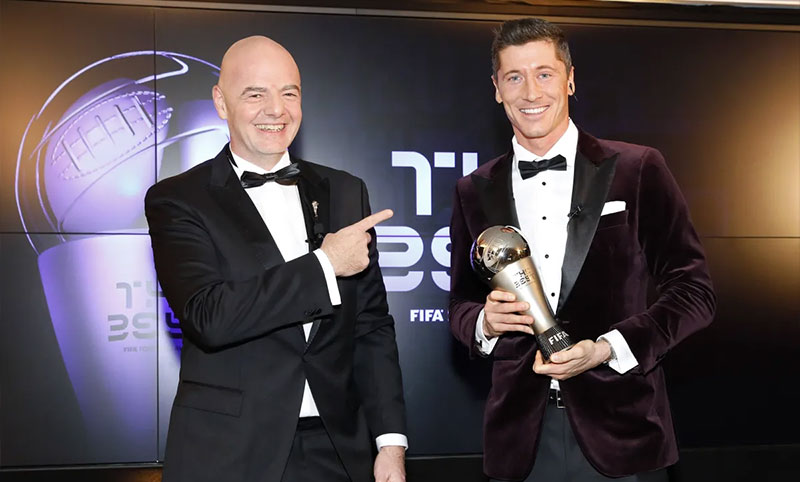
Recommend Channel

World National football team squads
Football Instagram Photo Gallery




© SportsLib. All rights reserved